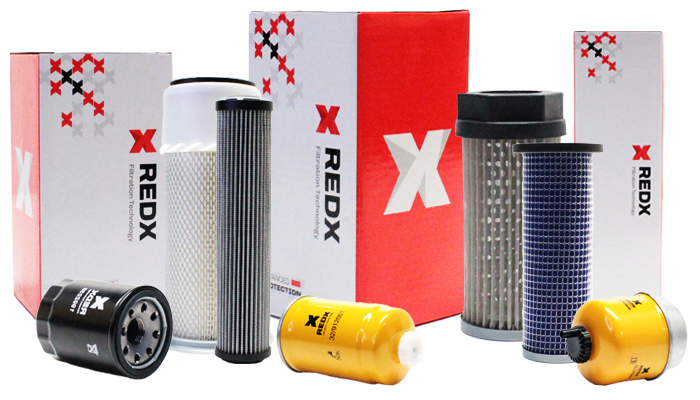parts that are tasked with filtering out motor oil residue, so its lubrication properties remain at the best level.
Full range
of filters for
wide range of
machines
- backhoe loaders
- excavators
- wheeled loaders
- telescopic loaders
- skid steer loaders
- tractors
- fork lifts
- industrial equipment
- dump trucks

All suitable
for machines by
We sell single filters as well as full sets of filters for the specific machine. All you need to provide is the serial number and the model of the machine or part catalog number of the filter.
Filter types in our offer
External and internal air filters
responsible for cleaning up the air taken into the engine the engine.
CCV – type filters
During the combustion process of the air-fuel mixture, certain amounts of gases enter the crankcase …
Fuel filters
parts that are tasked with filtering out motor oil residue, so its lubrication properties remain at the best level.
Engine Transmission Gearbox filters
parts that are tasked with filtering out motor oil residue, so its lubrication properties remain at the best level.
Cabin filters
parts that are tasked with filtering out motor oil residue, so its lubrication properties remain at the best level.
Hydraulic filters
parts that are tasked with filtering out motor oil residue, so its lubrication properties remain at the best level.
Strainers on the suction side
parts that are tasked with filtering out motor oil residue, so its lubrication properties remain at the best level.
Low pressure filters or suction filters
parts that are tasked with filtering out motor oil residue, so its lubrication properties remain at the best level.
High pressure filters
parts that are tasked with filtering out motor oil residue, so its lubrication properties remain at the best level.
Tank breathers
parts that are tasked with filtering out motor oil residue, so its lubrication properties remain at the best level.
Out-of-circuitfiltration
parts that are tasked with filtering out motor oil residue, so its lubrication properties remain at the best level.
We guarantee
Quality
The highest quality of filters, guaranteed thanks to the most modern manufacturing methods in accordance with the norms and quality assurance procedures.
Availability
Regular change of filters not only will ensure the highest work performance and comfort of the operator, but also extend the period of trouble-free machine operations, thus avoiding costly repairs and major system malfunctions in the machine.
Best prices
Available on hand in vast majority, with same day shipping.